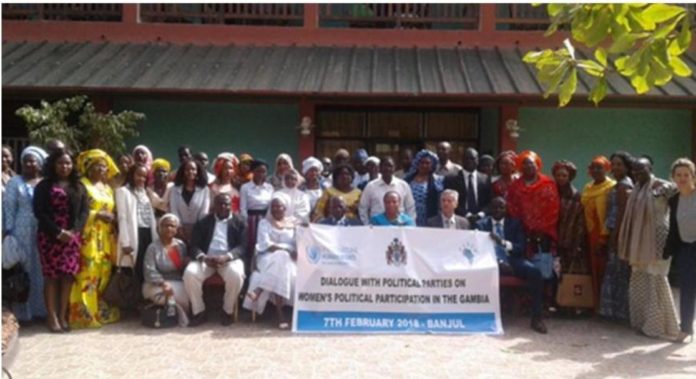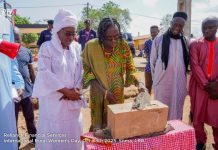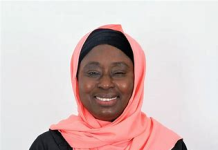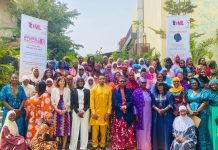By: Kebba AF Touray
The West African Network for Peace Building (WANEP) in collaboration with partners, on Monday started a two day training activity for female candidates, for the upcoming Local Government Election. The training aims to enhance women’s active participation in the political process of the country.
Ms. Anna Jones, National Network Coordinator, WANEP, after their meeting with nine political parties on February 7th, said they have agreed to advance their advocacy for women’s political participation and representation, and that the parties have agreed to support the introduction of a quota system for women’s political participation in The Gambia.
Statistically, she explained that 10.3 percent of the 58 elected and nominated parliamentarians are women and out of 115 National Councillors, only a few are women.
“This training is therefore important and timely as it would provide the potential candidates with the rare opportunity to retrace the steps of Gambian women from the Colonial era to date, who laid the foundation for women’s participation in the political process”, she said.
The UN Resident Co-ordinator Madam Ade Mamonyane Lekoetje, said protecting and promoting women’s human rights is the responsibility of all states, but that women remain under-represented as political leaders and elected officials in the Gambia; that out of 53 National Assembly Members, only 3 are women.
“Electoral support must include gender-responsive and human rights-based approaches that specifically aims to increase women’s representation. Contribution to uphold a safe and peaceful environment and strengthen the credibility of the electoral process, could also help address the issue”, she added.
She expressed her strong belief that the workshop will improve the capacities of women seeking electoral office and to organize election campaigns, as well as boost women’s leadership in decision making, especially at the grassroots.
Alieu Momar Njai the Chairman of the IEC, said women are fully empowered in the Constitution under Sections 25 and 26, to participate in the electoral and political process as equal as their men folk; but that what the statistics indicate is that 53.7 percent of the Gambian electorate are female, whilst 46.3 percent are male; that this shows that women have the numerical advantage to elect people into office.
He revealed that social or religious sentiments hinder the massive participation of women in elections, especially as candidates, but pointed out that women have equal access and opportunity as men since there is no fundamental restriction denying them their rights to be franchised or to be elected as candidates.
“Therefore, I urge all the political parties in The Gambia, to put up more women candidates forward to contest in the forthcoming Local Government Elections”, he concludes.
The Vice President and Minister for Women’s Affair, Fatoumata Jallow Tambajang, said the workshop was timely and that it is in line with Government’s National agenda; that trainings like this workshop are highly needed and recommended as a mechanism for increasing the representation of women in political life and that in broad terms, training is a facilitation measure to ensure the participation of women in the political process.
“Gambian women must work hard to make women visible in all spheres of public and private life in order to balance gender equality in accessing all development opportunities because they are the dominant actors in providing the necessities of life in the nation”, she said.
She said the Government of the New Gambia has challenged the Ministry of Women’s Affairs, to address these fundamental constraints for the empowerment of women.
“There are many talented women in this room and having more women in political leadership is a matter of both equality and logic. It is a basic human right for all and to enjoy full legal equality of opportunities. Women must have equal opportunity across all spheres of life including the political social life”, noted VP Tambajang.





















